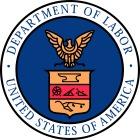U.S. Department of Labor (“DOL”) yesterday issued an Administrator Interpretation Memorandum announcing its position that most American workers are employees (as opposed to independent contractors), and thus are covered by the Fair Labor Standards Act (FLSA). The announcement comes exactly two weeks after the DOL issued a Notice of Proposed Rulemaking that would significantly change the legal requirements for an employee to qualify as exempt from the overtime requirements of the FLSA.
 According to the Memo, employers are intentionally misclassifying workers as independent contractors to cut costs and avoid compliance with various laws, which deprives workers of certain benefits of employment. Taken together, the two recent DOL actions make the DOL’s true intentions abundantly clear: to sweep more American workers under the umbrella of the FLSA, and in turn, have more of those covered employees earning overtime compensation (or significantly higher salaries).
According to the Memo, employers are intentionally misclassifying workers as independent contractors to cut costs and avoid compliance with various laws, which deprives workers of certain benefits of employment. Taken together, the two recent DOL actions make the DOL’s true intentions abundantly clear: to sweep more American workers under the umbrella of the FLSA, and in turn, have more of those covered employees earning overtime compensation (or significantly higher salaries).
In the Memorandum, the DOL sets forth its interpretation of the FLSA’s definition of “employ” and the multi-factored “economic realities test” utilized by the courts to guide the analysis of whether a worker is properly classified as an independent contractor under the law. According to the DOL, applying the economic realities test in view of the FLSA’s expansive definition of “employ” will result in most workers being employees, and not independent contractors. In other words, a worker is an employee unless a convincing argument can be made that the worker is properly classified as an independent contractor.
While the “economic realities test” might vary somewhat depending on the court applying the test, the traditional questions considered are:
- Is the work done by the worker an integral part of the employer’s business?;
- Does the worker’s managerial skill affect the worker’s opportunity for profit or loss?;
- How does the worker’s relative investment compare to the employer’s investment?;
- Does the work performed require special skill and initiative?;
- Is the relationship between the worker and the employer permanent or indefinite?; and
- What is the nature and degree of the employer’s control over the worker?
These questions should be considered under the guiding principle that workers who are economically dependent on the employer are employees, and only workers who are really in business for themselves are independent contractors. All factors must be considered in each case, no one factor is determinative, and the ultimate determination must be the degree of the worker’s economic independence from the employer.
© Copyright 2015 Armstrong Teasdale LLP. All rights reserved



 Beginning with the observation that “It’s been a few good days for America,” Obama announced the salary threshold where workers wouldautomatically qualify for time-and-a-half overtime wages would be raised from $23,660 to $50,440. This change in regulation can be made by the Administration, with no need for Congressional approval. The announcement came through a blog post written by the President for the Huffington Post, you can read it
Beginning with the observation that “It’s been a few good days for America,” Obama announced the salary threshold where workers wouldautomatically qualify for time-and-a-half overtime wages would be raised from $23,660 to $50,440. This change in regulation can be made by the Administration, with no need for Congressional approval. The announcement came through a blog post written by the President for the Huffington Post, you can read it 

